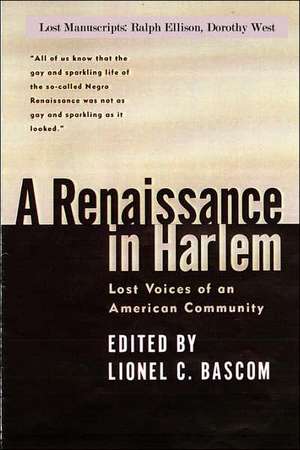A Renaissance in Harlem
Autor Lionel Bascomen Limba Engleză Paperback – 31 mai 2007
Preț: 178.61 lei
Nou
34.18€ • 35.68$ • 28.29£
Carte tipărită la comandă
Livrare economică 05-19 aprilie
Specificații
ISBN-10: 1430321830
Pagini: 295
Dimensiuni: 152 x 229 x 17 mm
Greutate: 0.44 kg
Editura: Lulu
Locul publicării:United States
Recenzii
Textul de pe ultima copertă
The Lindy-Hoppers at the Savoy began to practice acrobatic routines, and to do absurd things for the entertainment of the whites, that probably never would have entered into their heads to attempt merely for their own effortless amusement. Some critics say that this is what happened to certain Negro writers, too -- that they ceased to write to amuse themselves and began to write to amuse and entertain white people, and in doing so distorted and over colored their material, and left out a great many things they thought would offend their American brothers of a lighter complexion. All of us know that the gay and sparkling life of the so-called Negro Renaissance of the '20s was not so gay and sparkling beneath the surface as it looked.
